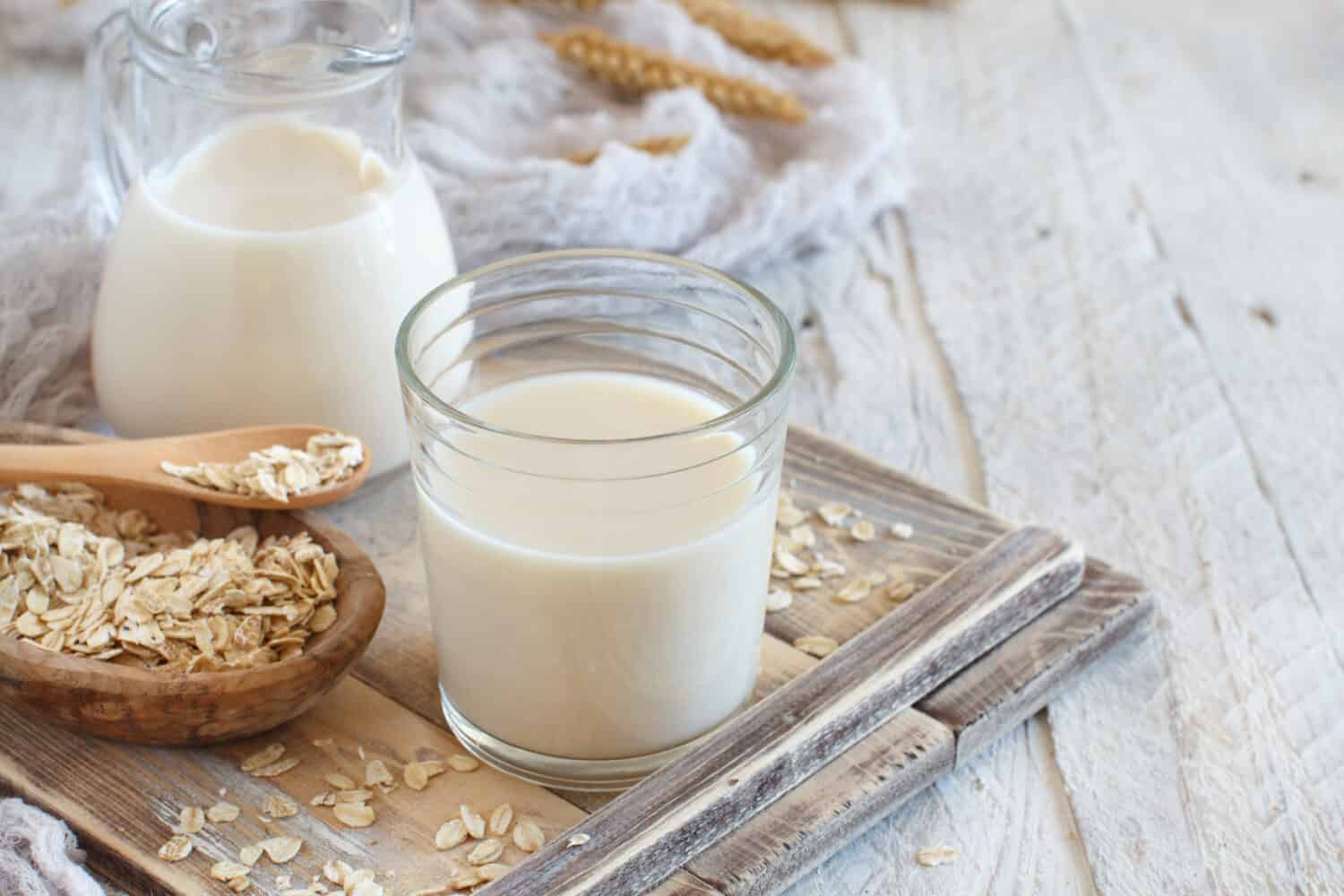Choosing an alternative to cow's milk can be a personal choice or a because of a health reason. There are many delicious alternatives if you enjoy milk. Two of those choices are oat milk and almond milk. Chances are you have heard of these two types; however, do you know the difference between oat milk and almond milk? The main differences include calories, carbohydrates, and taste.
This article will cover what each type of milk is and the differences between the two. Let's get started!
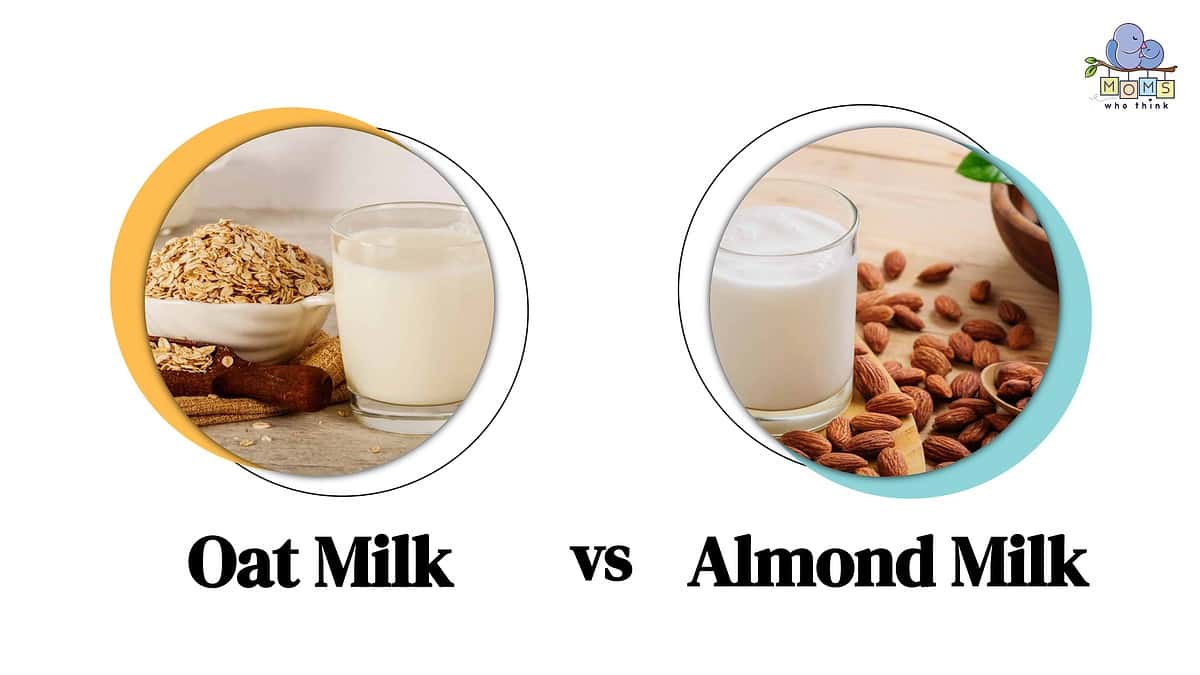
What is Oat Milk?
Those who are lactose, nut, soy, or dairy-free may enjoy a refreshing cup of oat milk. It can also be a safe alternative for anyone with a gluten intolerance or allergy if the oats in the milk are “certified gluten-free.” If you are looking for gluten-free oat milk, be sure to read the labels.
Oat milk is a plant-based drink and is made specifically from oats. Oat milk can be effortless to make at home, and it includes soaking the oats in water. Furthermore, oat milk is a popular alternative to cow's milk for various reasons. It carries a similar frothier flavor, just like cow's milk. However, it is an excellent alternative for specific allergies or sensitivities.
Main Ingredients in Oat Milk
Oat milk is made from oats and water. It is easy to make your own at home using steel-cut oats and cold water. Many different brands will include alternative ingredients for flavor. Some of these flavor additives are vanilla, cinnamon, and sugar. Oat milk is often also fortified with added vitamins and micronutrients.
One of the perks of oat milk is that it is nut-free. This aspect gives it a leg up from almond milk for those who have a nut allergy or sensitivity or do not enjoy the flavor of nuts.
What are the Calories and Nutritional Profile of Oat Milk?
Oat milk has a higher calorie count than almond milk. It contains excellent nutrients and vitamins, including vitamin B12, Calcium, Phosphorus, Iron, and Vitamin D.
While oat milk has higher calories and more carbohydrates than almond milk, it does have less protein than cow's milk.
Oat milk is a vegan option that is safe for those who are lactose, nut, dairy, and soy-free. While not all oat milk brands are gluten-free, some are gluten-free certified, making them an excellent alternative for people who are gluten-free.
Additionally, some studies point to oat milk's ability to lower bad cholesterol and build bone health.
Pros and Cons of Oat Milk
Like any food or drink we put in our bodies, oat milk also has pros and cons. Let's take a look at those below.
| Pros of Oat Milk |
| It tastes similar to cow's milk |
| It has a frothier texture |
| Excellent vegan alternative |
| Free of soy, nuts, and lactose |
| Can be gluten-free |
| Easy to make at home |
| Full of essential nutrients and vitamins like Vitamin B and Calcium |
| It may lower bad cholesterol |
| Good for bone health |
| Safe for kids |
| Cons of Oat Milk |
| It can be pricier than cow's milk |
| Not every oat milk brand is certified gluten-free |
| Less protein than cow's milk |
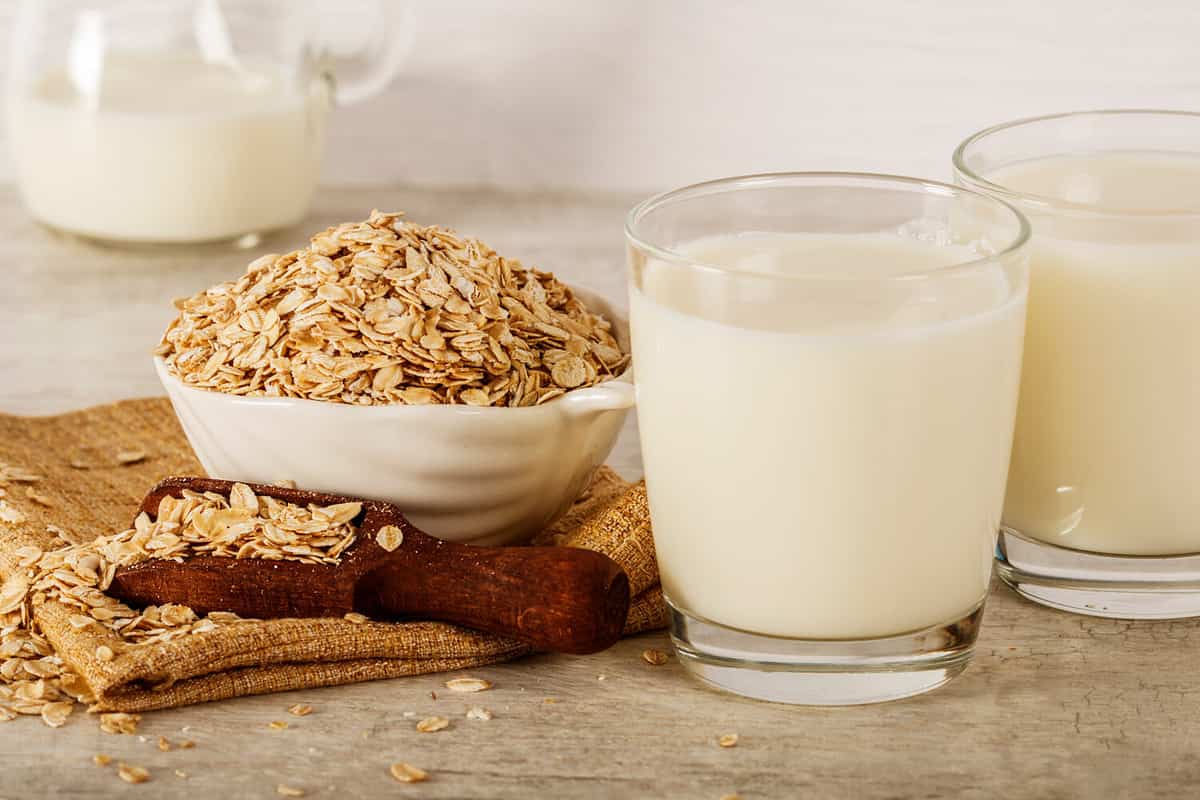
©YuriiVD/Shutterstock.com
What is Almond Milk?
Another great alternative to cow's milk is almond milk. Almond milk is also a plant-based milk substitute made from almonds that have been ground up and water. Like oat milk, almond milk can have different additives depending on brand and type. Some of these additives include flavoring like vanilla and sugar.
Almond milk has a thin, nutty flavor that differs from cow's and oat milk. Additionally, this drink can be thinner than its milk alternatives, making it an excellent base for smoothies and shakes.
One of the perks of almond milk is the fact that it is dairy-free. Therefore, those struggling with lactose or dairy allergies could benefit from drinking almond milk.
One downside between almond milk and oat milk is that almond milk is not nut-free.
Main Ingredients in Almond Milk
The ingredients in almond milk will vary depending on brand and type. However, the base of almond milk includes ground-up almonds and water. It is easy to make at home, just like oat milk. Nonetheless, it is essential to remember that homemade almond milk does not have added nutrients and vitamins.
Additionally, many brands will include additives to almond milk, including vanilla and sugar. Opt for unsweetened milk options if you are looking for the best healthy alternative to cow's milk.
What are the Calories and Nutritional Profile of Almond Milk?
Almond milk has fewer calories in it than oat milk. One cup of almond milk carries around 39 calories, making it great for those who desire a lower-calorie choice.
Almond milk has added vitamins that are great for one's health. These include Vitamin D. Almond milk, however, is not a great source of protein.
Pros and Cons of Almond Milk
Like oat milk, almond milk carries pros and cons as well. Let's take a look at these below.
| Pros of Almond Milk |
| Low in calorie |
| Good for lactose intolerance |
| Great alternative for those who are dairy-free |
| Taste is sweet and nutty |
| Excellent source of natural Vitamin E |
| Has added Vitamin D |
| Relatively simple to make at home |
| Cons of Almond Milk |
| Not safe for babies |
| Not a great source of protein |
| It can be higher in sugar depending on brands and types |
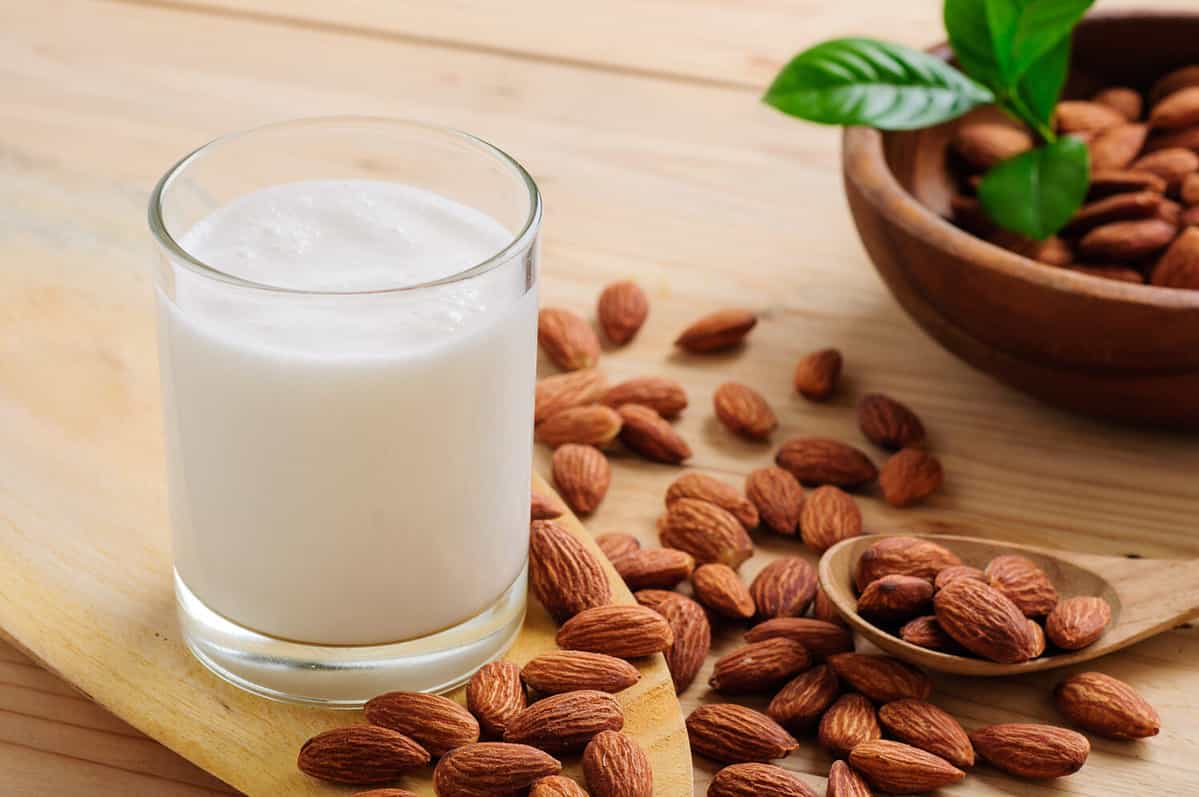
©Wichy/Shutterstock.com
What are the Differences Between Oat Milk and Almond Milk?
Oat and almond milk are excellent alternatives for those who have embraced a dairy-free lifestyle by choice or necessity. While they both contain many similarities, some unique differences set them apart.
Oat Milk is Higher in Fat and Calories
Oat milk is higher in fat than almond milk. It is also higher in calories.
For example, Silk's original cup of oat milk contains 120 calories. Additionally, while still low, fat content is higher than almond milk at five grams of fat. Alternatively, one cup of original almond milk from Silk has two and a half grams of fat. Also, the calories in this same cup of almond milk are 60 calories.
They Vary in Taste
Oat milk carries a slightly different flavor than almond milk. For starters, it is creamier and has a more decadent taste. Also, because it is thicker than almond milk, oat milk can make you feel fuller for longer.
Almond milk has a nutty flavor that can be sweet, depending on your chosen flavor and brand. It also has a thinner consistency than oat milk because it uses more water.
Almond Milk is Not Nut-Free
Oat and almond milk are fantastic vegan choices and excellent alternatives to cow's milk; there is one crucial difference. Almond milk is not a safe alternative for nut allergies or sensitivities. Therefore, in this case, oat milk would be the better option.
Nutritional Profile Differences
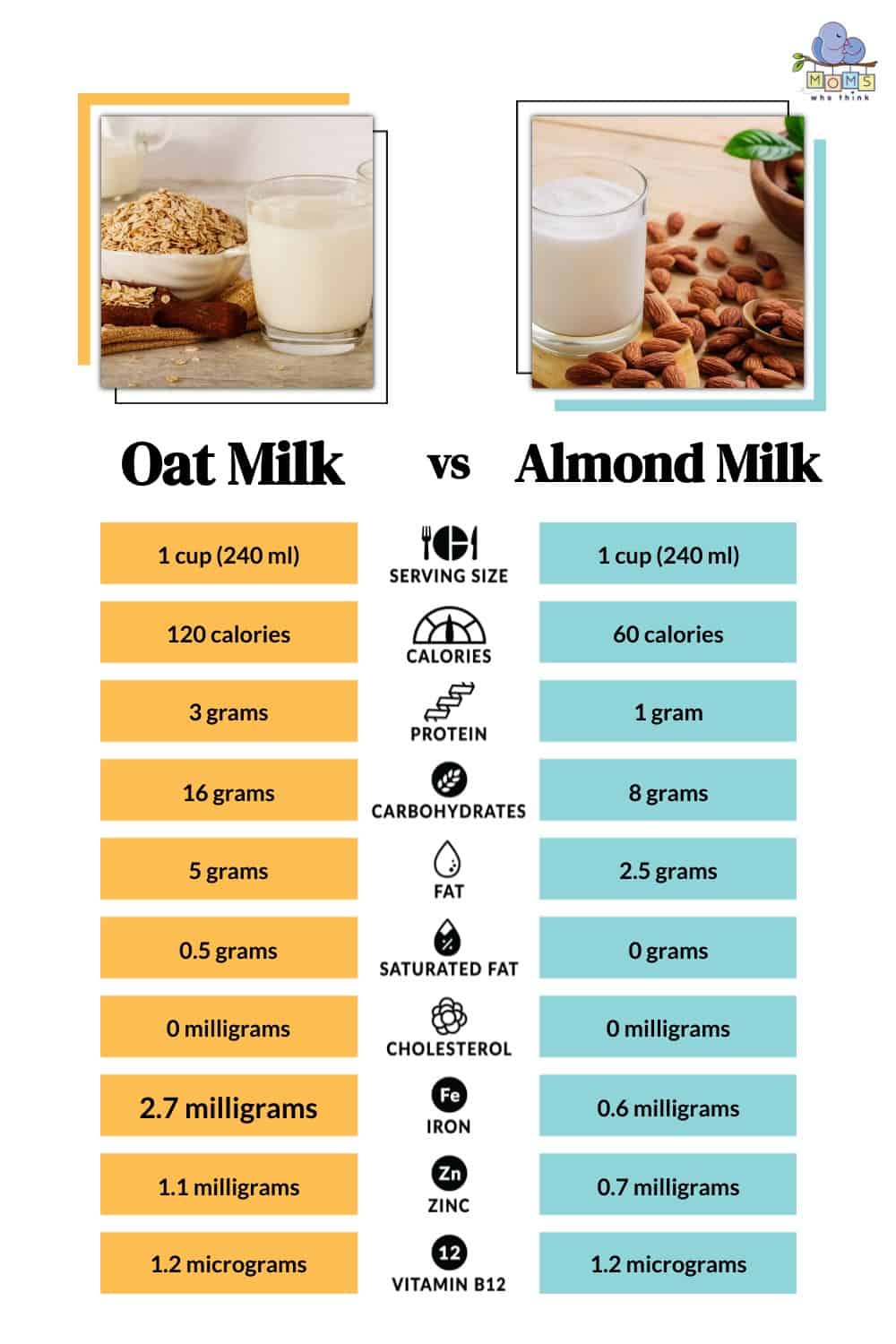
Which One is Better For You?
The original question still begs to be answered: Out of almond and oat milk, which one is healthier? The truth is, the answer depends. If you are looking for a great substitute that is low in calories to maintain or lose weight, almond milk would be the better option.
Yet, oat milk is an excellent substitute for those who need to avoid nut-based milk due to insensitivity or allergies. The milk you choose depends on many factors and is a personal choice. Regardless of your choice, these milk alternatives can add flavor to your next drink or shake and help you maintain a healthy lifestyle!
Drink Comparison Posts
- Evaporated vs. Condensed Milk: Differences & Pros and Cons for Each (momswhothink.com)
- Orange Juice vs. Sunny D: What's the Health Difference?
- Club Soda vs. Seltzer Water: Key Differences You Need to Know
The image featured at the top of this post is ©Katrinshine/Shutterstock.com.
